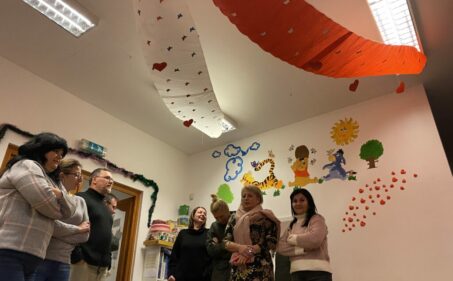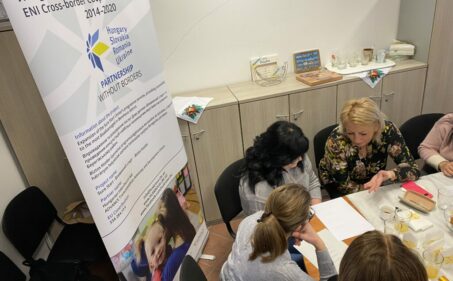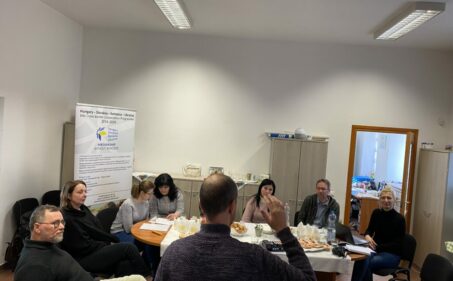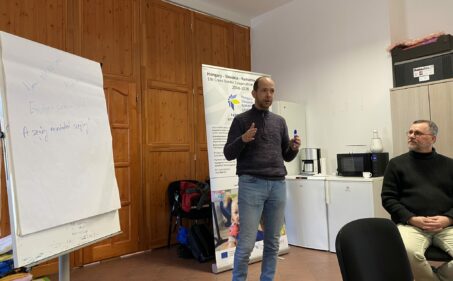Joint workshop held for Ukrainian & Hungarian Sure Start staff
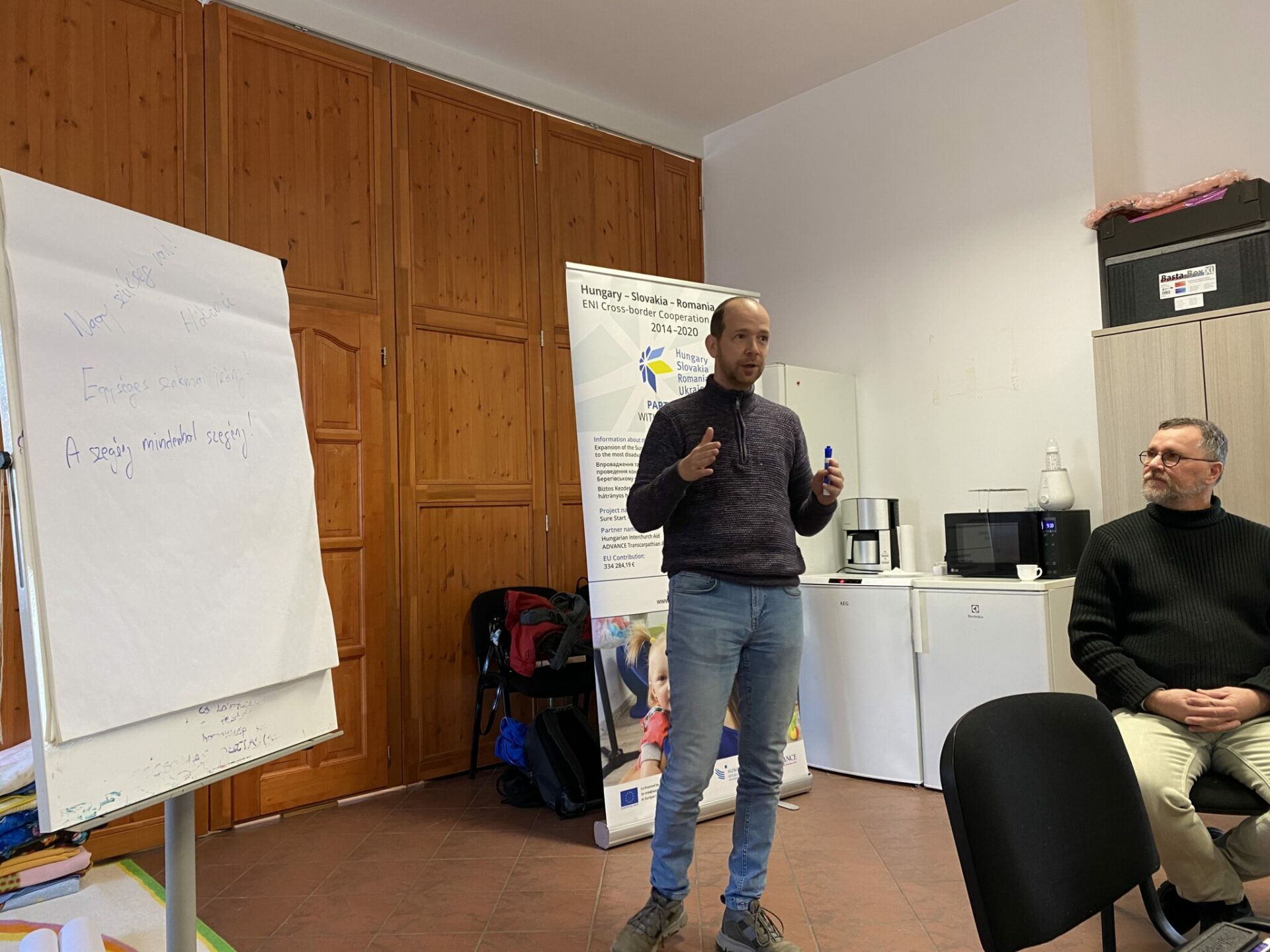
The staff of the Sure Start Children’s Homes (SSCH) participating in the cross-border cooperation programme took part in a three-day joint professional training in Szendrő, Hungary. The event was aimed at improving interpersonal workflows, transfer of knowledge between the SSCHs, professional dialogue and strengthening common goals, as well as the evaluation of professional challenges based on case discussions.
On the first day of the training, the Hungarian and Ukrainian professional staff had the opportunity to get an insight into the operation of the SSCHs in Olaszliszka and Boldogkőújfalu within the framework of a mother-infant developmental session, followed by a methodological discussion with the participation of the SSCHs’ professional leadership. As no institution can be understood without its wider community, the staff has also visited three families living in extreme poverty to understand their daily struggles and situation better.
On the second day, participants discussed mainly the impressions and lessons learned from the first day, reflecting mainly on the differences between the Hungarian and Ukrainian systems. Hungarian SSCHs are able to rely on a social safety net – family support network, protective services – that their Ukrainian counterparts cannot. Discussions also showed that the different set-up of state services and different standards make it difficult to build a unified operating scheme, but workshops like these are a good opportunity to overcome difficulties. The programme, which was extended to IDPs because of the war, has also brought many other aspects into the life of the SSCH in Berehovo, which the Ukrainian professional staff also plan to address on the basis of a unified protocol.
The day ended with case discussions: the head of the SSCH in Szendrő and the head of the SSCH in Berehovo each brought a case, which was discussed in 2 rounds. There was an internal round, where the participants could ask clarifying questions after a preliminary presentation of the topic, followed by an interpretation phase and a conclusion.
Despite the difficulties, the positive side of the mission prevailed upon evaluation of the SSCHs’ work on the final day of the workshop. Here, the assistance, the importance and necessity of early development, the example set and the extension of the programme were all discussed. The final panel focused on the tools and tasks to bridge the gap between the objectives set by the programme and the professional goals of the participants, to which the participants of the training assigned needs that are essential for their realisation.

